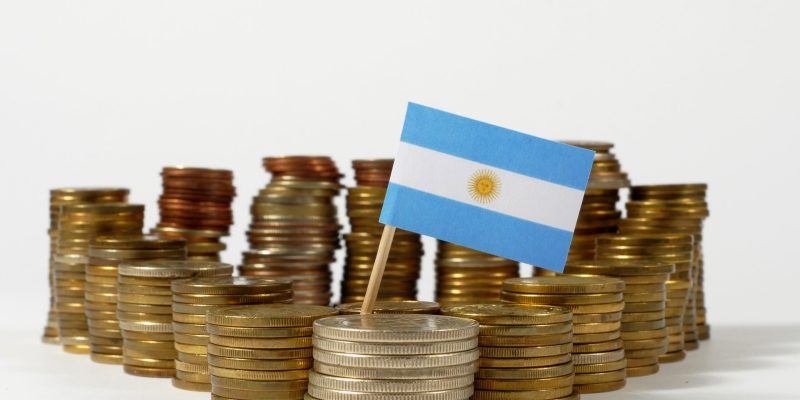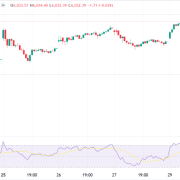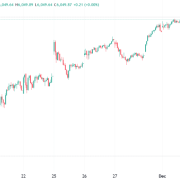
Argentina’s poverty rate soared to nearly 53% in the first half of 2024, according to official data released on Thursday, marking a sharp increase from the 41.7% reported at the end of 2023.
This rise, driven by the tough austerity measures implemented by President Javier Milei, reflects the immediate economic impact of his efforts to address the country’s deep fiscal deficit.
While Milei’s policies aim to stabilise Argentina’s finances, they have inflicted significant short-term hardship, especially on low-income households, as inflation remains in triple digits and the economy endures a recession.
Milei’s sweeping economic reforms
The official figures show Argentina’s poverty rate has more than doubled from 26% seven years ago, underscoring the severe consequences of repeated economic crises.
While Milei’s fiscal reforms, including deep spending cuts, have been welcomed by investors for helping to correct the nation’s long-standing budgetary imbalance, the human cost has been steep.
The sharp rise in poverty highlights the toll these policies are taking on the country’s most vulnerable citizens, exacerbating inequality.
The libertarian president’s policies are designed to reduce public spending, but in doing so, many social safety nets have been weakened.
Job losses and reductions in welfare support have placed additional strain on households, with many families struggling to afford basic necessities.
Soaring inflation and economic downturn drive rising poverty
Argentina’s economy remains mired in a deep recession, with inflation continuing at triple-digit levels, although some analysts see early signs of stabilisation.
Despite the efforts to control inflation, the skyrocketing cost of living has contributed to a worsening of poverty.
Even those who manage to retain employment are finding it increasingly difficult to make ends meet, as wages fail to keep pace with price hikes.
One of the most affected groups is informal workers, many of whom have seen their incomes decline dramatically.
Irma Casal, a 53-year-old resident of Buenos Aires, symbolises this growing economic hardship.
Despite holding three jobs—recycling garbage, collecting cardboard, and working as a bricklayer—she can barely sustain herself.
“We work twice as hard for less and we have to keep going,” Casal says, summarising the plight of millions of Argentines.
Markets applaud reforms, but public pays the price
Despite the severe impact on everyday Argentines, Milei’s austerity measures have been met with approval from investors and financial markets.
His government’s fiscal discipline is seen as a necessary step toward addressing Argentina’s long-standing deficit problems.
Markets have responded positively to the government’s budget cuts, which are aimed at restructuring the country’s finances and making Argentina more attractive to foreign investors.
However, the recession and ongoing inflation have made it clear that the cost of Milei’s reforms is being borne disproportionately by Argentina’s lower and middle classes.
Critics argue that while the markets may benefit from these reforms, ordinary citizens are left grappling with shrinking incomes and limited opportunities for upward mobility.
Signs of recovery, but poverty remains high
Despite the grim numbers, some experts see signs of a potential turnaround.
The Catholic University of Argentina (UCA) estimates that while the poverty rate surged to 55.5% in the first quarter of 2024, it eased slightly to 49.4% in the second quarter, averaging around 52% for the first half of the year.
Agustin Salvia, director of UCA’s observatory, noted that Milei’s policies have started to show some positive effects, with poverty beginning to decline in recent months.
The broader context remains bleak. The government has cut several welfare programmes while expanding others, such as the Universal Child Allowance and a Food Card initiative.
These targeted interventions provide some relief, but they are insufficient to offset the full impact of the wider spending cuts.
Long-term prospects for Argentina’s economy under Milei
Looking ahead, the long-term success of Milei’s economic strategy remains uncertain.
His government has acknowledged the challenges facing the nation, with presidential spokesman Manuel Adorni stating that “any level of poverty is horrendous” during a press conference.
Adorni blamed the mismanagement of previous administrations for the economic “bombs” Milei’s government is now attempting to defuse.
Despite the government’s efforts to mitigate the impact of austerity on Argentina’s most vulnerable, the immediate future remains difficult for millions of Argentines.
The hope for many is that the short-term pain will eventually yield long-term economic stability, but for now, the country’s poverty rate continues to rise as Milei navigates the challenges of balancing fiscal discipline with social welfare.
The post Argentina’s poverty soars to 53% amid Milei’s austerity measures appeared first on Invezz









